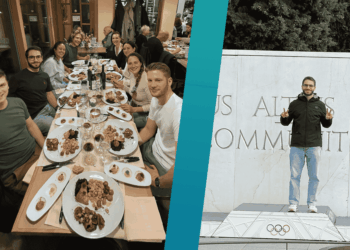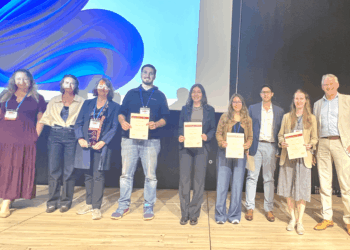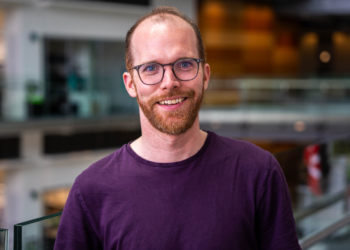by Daniel Jacobson
My science success story came tumbling down at around 6pm in early January 2020.
As a 24-year-old, second-year PhD student, I hesitate to refer to any previous achievements as a ‘science success story’, but this felt huge. A month earlier, I was around half-way through a rotation project when I produced a set of results that, to my mind, looked perfect – thirteen or so sets of plots showing just how fantastic my classifier was. The samples were distinctly and predictably clustered, the conclusions were intuitive and explainable, and the associated ROC curves were beautiful right angles with slight noise in the top left-hand corner, thereby demonstrating that I had done them myself.
I was a very happy second-month researcher.
 Each set of results took around ten seconds to be produced meaning that, if ever I was feeling unproductive or uninspired, I would run my analysis, and spend two minutes or so watching my models work, beginning messy and unsure before finally resolving and printing my eagerly desired output. It was the essence of self-aggrandisement, and it felt fantastic.
Each set of results took around ten seconds to be produced meaning that, if ever I was feeling unproductive or uninspired, I would run my analysis, and spend two minutes or so watching my models work, beginning messy and unsure before finally resolving and printing my eagerly desired output. It was the essence of self-aggrandisement, and it felt fantastic.
I was on the verge of not even realising that I had missed a key, obvious step. When I did notice, it was dark outside, and I was already late to meet my flatmate at the cinema. But I knew that if I didn’t at least check then I would regret it all evening. It shouldn’t be that big of a deal, I naively reassured myself, slotting the missing step into my script.
What commenced was the longest two minutes of my scientific career.
I settled in, but raised an eyebrow after ten seconds when the first result appeared:
>”AUC=0.52″
Interesting. That didn’t happen last time. It was probably an artefact or something. I’ll figure that out later.
>”AUC=0.49″
Ah, I was expecting that! The second model was always rubbish, but I knew why, and if anything, it just exemplified how great the others were. Like this next one…
>”AUC=0.48″
Wait, what’s going on?
My mistake had the greatest possible influence on my growth as a scientist.
And so it went. Every result, one by one, systematically dismantled. As the final ROC curve appeared, a straight, diagonal line indicating such a lack of predictive power that this may, of itself, have been an interesting result, I sat there a minute longer, contemplating what I was going to present at the group meeting later, before packing up my laptop and sulking away.
I think the reason why this incident had such a profound effect was that the initial analysis was my first taste of what it could be like to be a scientist. I had been afforded the freedom to approach a problem however I chose, and it had worked. My confidence had grown, my imposter syndrome had dissipated, and I began to think that I was far more prepared for this PhD than I’d anticipated. Even though the fault was entirely mine, to see my work disproven so conclusively was disheartening.
However, this meant that my mistake had the greatest possible influence on my growth as a scientist. It exemplified the importance of rigour and care, but also resilience and not defining oneself by results. I am yet to save a patient, or publish in Nature, or even finish that pile of PCAWG papers from last year. But as science success stories go, for now, I’m fine with this one.
 About the author
About the author
Daniel Jacobson is a 2nd year PhD student in computational cancer genetics at University College London. His research focusses on the causes and consequences of deficiencies in the DNA damage response. You can generally find him at the closest coffee shop, listening to Beth Orton or tweeting as DanH_Jacobson.



 About the author
About the author





